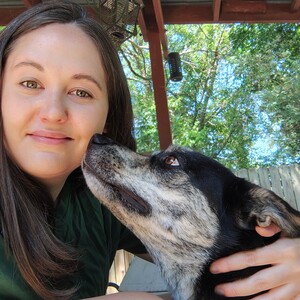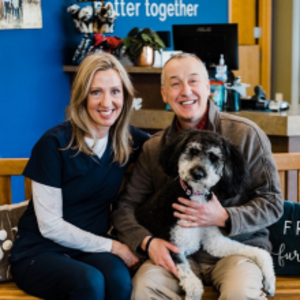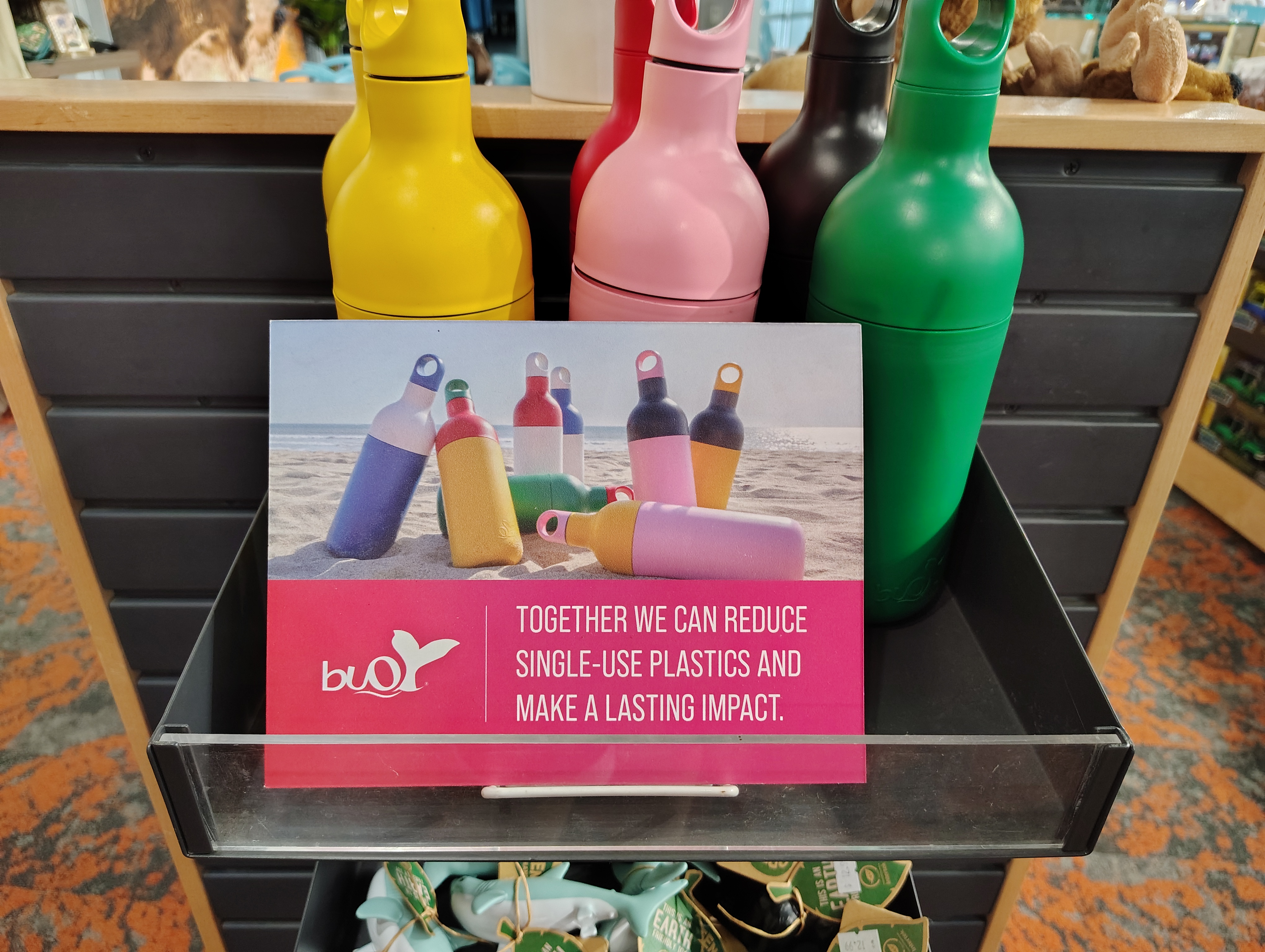- Adventurer 🏔
Lauren Logsdon
"Changing the future one step at a time. "
POINTS TOTAL
- 0 TODAY
- 0 THIS WEEK
- 871 TOTAL
participant impact
-
UP TO2.0low-plastic mealsconsumed
-
UP TO1.0plastic footprintcalculated
-
UP TO1.0artistsupported
-
UP TO9.0plastic itemsavoided
-
UP TO4.0conversationswith people
-
UP TO10ideasshared
-
UP TO1.0advocacy actioncompleted
-
UP TO105minutesspent learning
Lauren's actions
First Steps: Start with You
Learn how plastic is made
Understanding the origins of plastic helps us see its environmental impact more clearly. I will spend 15 minutes learning how plastic is made — from fossil fuels to finished product — and reflect on how that knowledge influences my choices.
First Steps: Start with You
Understand Plastic’s Impact on My Health
Plastics can leach harmful chemicals into food, water, and the air we breathe. I will spend 15 minutes learning about the health impacts of plastic exposure and explore safer swaps — like choosing glass or stainless steel over plastic for food storage and drinking water.
Level Up: Influence Friends and Family
Invite others to join the Ecochallenge
Our actions are more powerful when we take them together. I will invite someone to join the Ecochallenge with me so we can learn and take action together.
Change the Game: Shift Systems and Policies
Learn about policies that support reducing plastics
Policy is one of the most powerful tools for reducing plastic waste at scale. I will spend 15 minutes learning about current or proposed plastic-related policies, such as bans on single-use plastics or extended producer responsibility laws, to better understand how systems can change.
Level Up: Influence Friends and Family
Swap ideas for reducing plastic with someone close to you
Sharing ideas helps us stay motivated and discover new ways to take action. I will share ideas with friends or family members about ways we each reduce plastic in our lives.
Change the Game: Shift Systems and Policies
Support a plastic or climate advocacy campaign
Advocacy campaigns can drive real change by amplifying public support. I will find and support a campaign — through a donation, signature, or share — that’s working to reduce plastic pollution or address the climate impacts of plastic.
Change the Game: Shift Systems and Policies
Switch to investments that avoid fossil fuels and plastics
Where we put our money matters. I will research and invest in companies, funds, or assets that avoid investing in fossil fuels and plastic production, aligning my finances with my values.
Change the Game: Shift Systems and Policies
Support an artist working for plastics reduction
Art can shift mindsets and spark movements. I will support a local or global artist using their work to raise awareness about plastic pollution — by purchasing, promoting, or sharing their art and message.
Level Up: Influence Friends and Family
Start a household challenge to reduce plastic
Change starts at home. I will create a fun challenge with my household — like using no single-use plastic for a day or swapping out a product — to make plastic reduction a shared goal.
Change the Game: Shift Systems and Policies
Donate to organizations working on systemic plastic reform
Some nonprofits are leading the charge to change policies and corporate practices. I will donate to an organization working to reduce plastic at the source and promote systemic solutions for a healthier planet.
First Steps: Start with You
Swap one product for a refillable or plastic-free option
Even small swaps can add up to big impact. I will replace one product I use regularly — like soap, cleaning spray, or snacks — with a refillable or plastic-free version.
Level Up: Influence Friends and Family
Pack a low or no-plastic lunch and talk about it with others
Food packaging is a major source of plastic. I will pack a lunch with little or no plastic and use it as a conversation starter with coworkers, classmates, or friends to share tips and inspire change.
Level Up: Influence Friends and Family
Create a reminder system or routine for remembering reusables
Even the best intentions can be forgotten in the rush of daily life. I will create a system — like a note on the door or a checklist — to help me and others in my household remember to grab our reusables before we go.
Level Up: Influence Friends and Family
Give a small gift that helps someone reduce plastic (e.g., tote, bottle, soap bar)
Giving can be an act of change and inspiration. I will give a thoughtful, plastic-free or plastic-reducing gift — like a reusable bag, bottle, or bar soap — to someone in my life and share why I chose it.
First Steps: Start with You
Design my grocery routine for less plastic
Our grocery habits are one of the biggest sources of single-use plastic, from packaging on produce to plastic bags and containers. I will spend 15 minutes researching low-plastic shopping strategies and make a list of things to look for or do differently the next time I go to the store.
Level Up: Influence Friends and Family
Visit a local recycling center, landfill, or transfer station
Seeing where waste goes can change how we think about what we throw away. I will visit a local facility to learn more about the waste stream in my community and share what I learn with others and in the feed.
First Steps: Start with You
Choose secondhand or a recycled product for my next purchase
Buying recycled or secondhand products helps close the loop and reduces demand for new plastic. I will look for and purchase a product made from recycled materials or choose a secondhand option the next time I shop to keep valuable resources in use longer.
First Steps: Start with You
Support businesses with plastic-free or refillable options
Where we spend our money shapes the market. I will support a business that offers plastic-free, low-waste, or refillable products or services.
Level Up: Influence Friends and Family
Prep a reusable kit for on-the-go
Having reusables ready and integrated into your daily routine can help you avoid single-use plastic while out and about. I will put together a kit with items like a mug, water bottle, utensils, or tote bag to take with me when I leave the house.
Level Up: Influence Friends and Family
Prepare a low-plastic meal with a friend or family member
Reducing plastic can be easier — and more fun — when shared. I will plan and prepare a meal with friends or family that minimizes single-use packaging and plastic waste.
First Steps: Start with You
Estimate My Plastic Consumption
Understanding my plastic footprint is a powerful first step toward making change. I will complete a short online plastic calculator, like the one from rePurpose Global, to estimate my annual plastic use and explore ways to reduce it.
Participant Feed
-
REFLECTION QUESTION
 Level Up: Influence Friends and FamilyWhat did you share about your lunch, and what kinds of responses did you get? Did the conversation open any doors? Post a pic of your meal in the feed!
Level Up: Influence Friends and FamilyWhat did you share about your lunch, and what kinds of responses did you get? Did the conversation open any doors? Post a pic of your meal in the feed!
 Lauren Logsdon 7/29/2025 10:58 AMIt wasn't a zero plastic lunch, but I was able to put together something low plastic and waste, and show it off!
Lauren Logsdon 7/29/2025 10:58 AMIt wasn't a zero plastic lunch, but I was able to put together something low plastic and waste, and show it off! -
REFLECTION QUESTION
 Level Up: Influence Friends and FamilyHow did planning and preparing the meal together affect the conversation about plastic? Did it inspire any new habits?
Level Up: Influence Friends and FamilyHow did planning and preparing the meal together affect the conversation about plastic? Did it inspire any new habits?
 Lauren Logsdon 7/28/2025 6:07 AM
Lauren Logsdon 7/28/2025 6:07 AM- Adventurer 🏔
My spouse and I teamed up to make a low plastic breakfast! Was fun to put out heads together on this. -
REFLECTION QUESTION
 First Steps: Start with YouWhat’s one change to your grocery habits that felt more manageable than expected — or harder than expected? Why do you think some products, like produce, started amassing so much plastic packaging? Who is the plastic packaging really serving -- the consumer, the producer, or someone else?
First Steps: Start with YouWhat’s one change to your grocery habits that felt more manageable than expected — or harder than expected? Why do you think some products, like produce, started amassing so much plastic packaging? Who is the plastic packaging really serving -- the consumer, the producer, or someone else?
 Lauren Logsdon 7/26/2025 5:44 PM
Lauren Logsdon 7/26/2025 5:44 PM- Adventurer 🏔
Researching before placing my grocery order tomorrow! Small amounts of excess plastic add up, but there are some good alternatives. -
REFLECTION QUESTION
 Level Up: Influence Friends and FamilyWhat new ideas or perspectives came up in your conversation? Did anything surprise or challenge you? Did anyone share ways they reduce plastics with you? If so, post the new ideas in the feed!
Level Up: Influence Friends and FamilyWhat new ideas or perspectives came up in your conversation? Did anything surprise or challenge you? Did anyone share ways they reduce plastics with you? If so, post the new ideas in the feed!
 Lauren Logsdon 7/24/2025 11:37 AM
Lauren Logsdon 7/24/2025 11:37 AM- Adventurer 🏔
I was given the idea to use beeswax wrap in place of plastic wrap and sandwich wrap. The product may be more expensive at first, but it is reusable and seems easy to rinse and dry. Plus, you can find cute patterns! 😊 -
 Lauren Logsdon 7/22/2025 8:15 AM
Lauren Logsdon 7/22/2025 8:15 AM- Adventurer 🏔
I have spent a fair amount of time reading articles and watching videos on plastics and the body and our oceans. It's really eye opening about the potential long-term damage. -
REFLECTION QUESTION
 Level Up: Influence Friends and FamilyWhy did you choose that particular gift, and how was it received? What conversations did it spark? Post a pic of the gift in the feed!
Level Up: Influence Friends and FamilyWhy did you choose that particular gift, and how was it received? What conversations did it spark? Post a pic of the gift in the feed!
 Lauren Logsdon 7/17/2025 8:41 AM
Lauren Logsdon 7/17/2025 8:41 AM- Adventurer 🏔
I had a few gifts to give my sister, so I packed them (unwrapped) in a reusable bag, which in turn, is another gift.-
 Stacey Stamps 7/20/2025 6:56 PM
Stacey Stamps 7/20/2025 6:56 PM- Pet Parent 🐾
-
REFLECTION QUESTION
 First Steps: Start with YouDid your estimated plastic footprint surprise you? How does it compare to the global average? After estimating your annual use, how did it feel to put a number on it? Did it inspire a sense of urgency, or something else?
First Steps: Start with YouDid your estimated plastic footprint surprise you? How does it compare to the global average? After estimating your annual use, how did it feel to put a number on it? Did it inspire a sense of urgency, or something else?
 Lauren Logsdon 7/15/2025 8:09 AM
Lauren Logsdon 7/15/2025 8:09 AM- Adventurer 🏔
My estimated footprint truly surprised me. I know people who refuse to recycle, change habits, etc, and I felt I was doing a good job making changes. And maybe I am, but this number shows I can do better! -
 Lauren Logsdon 7/13/2025 9:44 AM
Lauren Logsdon 7/13/2025 9:44 AM- Adventurer 🏔
-
 Alexia Woerner 7/13/2025 1:51 PM
Alexia Woerner 7/13/2025 1:51 PM- Adventurer 🏔
-
 Lauren Logsdon 7/10/2025 7:33 AM
Lauren Logsdon 7/10/2025 7:33 AM- Adventurer 🏔
There are so many amazing artists to support who are working for plastic reduction. Very inspiring! -
REFLECTION QUESTION
 Level Up: Influence Friends and FamilyWhat did your household choose to focus on, and what was it like to work toward change together? What helped or hindered your progress?
Level Up: Influence Friends and FamilyWhat did your household choose to focus on, and what was it like to work toward change together? What helped or hindered your progress?
 Lauren Logsdon 7/09/2025 7:53 AM
Lauren Logsdon 7/09/2025 7:53 AM- Adventurer 🏔
Our household has made a pact to avoid single use plastic drinks. No more pop bottles or bottled water.
